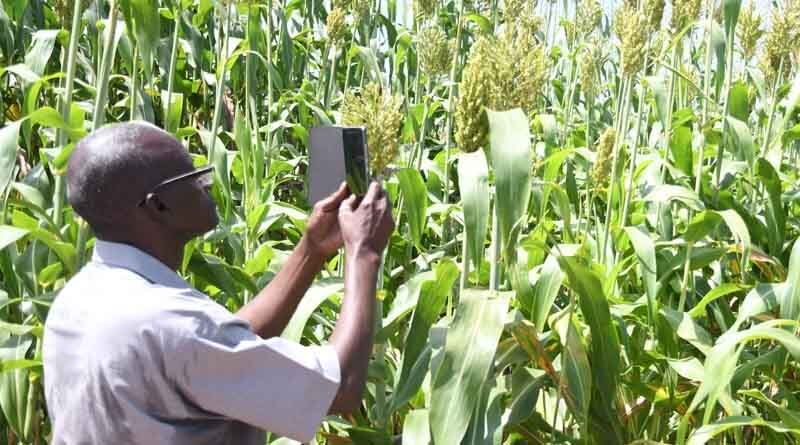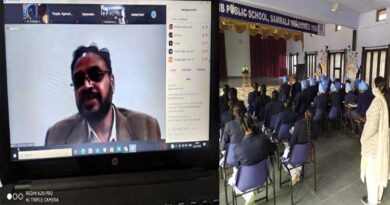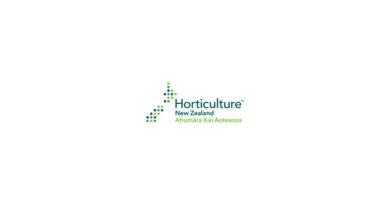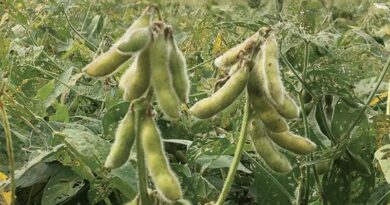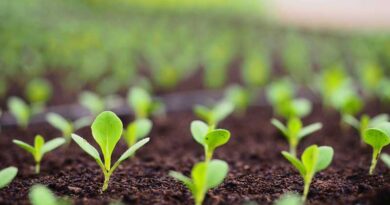ICRISAT and UK experts discuss policies & alliances to mainstream climate-resilient and sustainable agriculture
28 July 2022, UK: To develop actions to mitigate climate change-induced risks in agriculture, a panel of experts shared their global experiences and reflected on the required policies and alliances towards building climate-resilient and sustainable agri-food systems at a webinar organized by the British Deputy High Commission, Hyderabad and ICRISAT on 19 July 2022.
The webinar on “Policies and Development Actions for Mainstreaming Climate-Resilient and Sustainable Agriculture” was organized as part of global efforts to mainstream climate action and sustainable practices.
The webinar was a part of a series of events that the British Deputy High Commission, Hyderabad plans to deliver over the next few months in the post-United Nations Climate Change Conference (CoP26) context focusing on specific outcomes from the summit.
Although multiple local and global stakeholders are increasingly working towards building resilience in agri-food systems, experts shared how current adaptation efforts to address this challenge from a systems perspective are not unified or well-integrated into development plans and actions.

Steering the discussion, Dr Jacqueline Hughes, Director General, ICRISAT, expressed the need to strengthen research policy links and shape coherent local-to-national level agricultural and climate decision-making and policies.
“Strengthened local and national stakeholder networks and capacity on climate action would be key to shaping and expanding risk-informed agricultural development in a changing climate and shift trajectories towards economic, environmental and social goals,” said Dr Hughes.
Elaborating on how the United Kingdom is transforming its agriculture sector to make it more climate-smart, the British Deputy High Commissioner, Hyderabad, Dr Andrew Fleming shared how the nation has sought advice from the Climate Change Committee, an independent, statutory body.
“We have taken bold action on climate change wherein emissions have reduced by 43% in less than 20 years, whilst still being able to grow our economy by 75%.
“These reductions have largely been delivered by decarbonizing of our power sector,” said Dr Fleming.
Dr Fleming further spoke on ways to strengthen UK-India collaboration to develop cutting-edge technology to build a green, resilient, prosperous future for both nations.
Citing the impact of climate change on crops, Dr Shalander Kumar, Deputy Global Research Program Director, ICRISAT, India, spoke on how climate change also impacts the nutritional quality of crops.
“A historical policy bias against the resilient and nutritious dryland crops like millets and legumes and the other traditional food crops make these regions more vulnerable to climate change, especially in terms of their food security,” said Dr Kumar.
Seconding Dr Shalander, Prof Pete Smith, Chair in Plant and Soil Science, University of Aberdeen (UK) stated that mitigation is needed to prevent the worst excesses of climate change.
Other panellists Dr Rengalakshmi, Director, Eco-technology, MS Swaminathan Research Foundation and Dr Sabine Homann – Kee Tui, Senior Scientist, Enabling Systems Transformation, ICRISAT, Malawi agreed that there is an urgent need to transform agri-food systems for a new climate reality that exists across multiple scales (local, regional and global), by involving multiple stakeholders and sectors. A total of 95 viewers participated in the webinar.
In his closing remarks, Dr Arvind Kumar, Deputy Director General-Research, ICRISAT, emphasized that linking research practices and policy will be the key to effectively addressing climate change impacts.
Also Read: Investment of Asean and Taiwan in India’s Food Processing Sector

